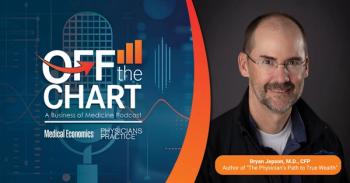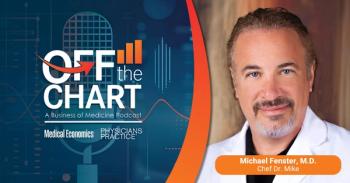
Physicians, Avoid Alternative Investments
Are you interested in putting money into alternative investments? Stay away, warns physician financial planner, Steven Podnos.
It is becoming common to see articles and recommendations in the financial press to include "alternatives" or "alts" in your investment portfolio. Investment advisors are bombarded by recommendations in their journals to do the same.
What do physicians have to know about alternative investments? Alternative investments are legion, and are basically any investment in markets outside of widely traded stocks, bonds, or cash. Technically even real estate is considered an alternative, but most professionals would consider publically traded REITs (real estate investment trusts) a form of stock investing within traditional bounds.
Non traded REITs, public placements, hedge funds, private equity, venture capital funds and more are all types of alternative investments. Before I go further, the bottom line is that unless you have more than $100 million and team of professional investors working for you, these "investments" are usually bad news for physicians. Actually, even if you do have $100 million and a team to help, these investments are not for you.
CALPERS (the California state pension system with 300 billion dollars in assets) recently concluded that much of its alternative investing in hedge funds was expensive and had terrible returns. And they had a legion of analysts and "advisors" that the average physician does not.
Without going into detail on each type, they share common characteristics. First, they have high fees. Second, they often are subject to high taxes. Third, they are opaque, meaning physicians have little control or insight into what the vendors are doing with their money (rest assured, nothing you'd like). Fourth, they are usually illiquid-you cannot have your money back easily without paying a high price (if at all). Fifth, you are investing against much more sophisticated institutions who have a great deal of asymmetric knowledge. In other words, they know much more than you.
As opposed to publically traded equity and fixed income markets, there is no efficiency or "random walk" here - there may in fact be a great deal of useful insider information (and you are no insider). Many of these investments also share the common characteristic of paying large fees to a long chain of salespeople (including your "advisor").
In contrast, investing in widely-traded stocks and bonds is transparent and inexpensive. You can easily diversify, control taxes to a great extent, and have complete daily liquidity without much trouble.
I'll finish with the strong recommendation that you avoid these investment choices. Furthermore, if you have an advisor recommending them, consider a change.
Newsletter
Optimize your practice with the Physicians Practice newsletter, offering management pearls, leadership tips, and business strategies tailored for practice administrators and physicians of any specialty.








